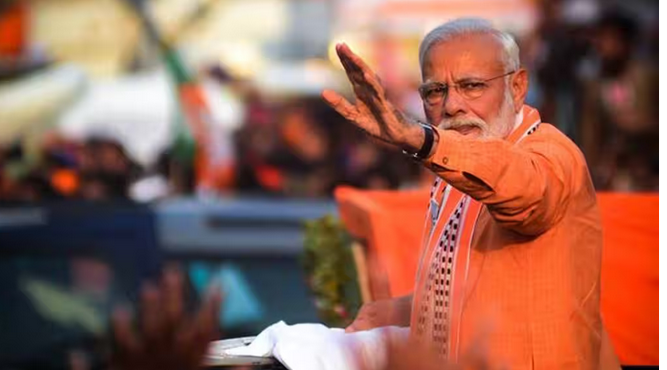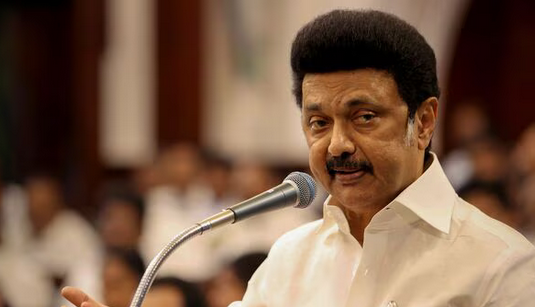
UBS Analyzes Potential Economic Outcomes if Modi Wins 2024 Lok Sabha Elections
As the 2024 Lok Sabha elections near, most surveys favor the current ruling party, the Bharatiya Janata Party (BJP). Analysts expect that a clear victory for the BJP would maintain consistent policies and boost investor trust in the stock market.”
In Modi’s potential third term, we can expect more digital progress and a continued focus on boosting manufacturing and exports, considering India’s growing role in global trade,” Jain mentioned in a report.
While refraining from making election predictions, UBS acknowledged that recent opinion polls indicate strong performance for the BJP in the upcoming general election. According to these surveys, Prime Minister Narendra Modi retains his position as the most popular leader in India.
The UBS report highlighted that the recent assembly election outcomes indicate several factors contributing to the BJP’s success: a) the ‘Modi factor’; b) public perception of accomplished work; and c) effective implementation of welfare programs. Additionally, it noted that the government has avoided adopting populist measures and continues to adhere to fiscal consolidation in preparation for the 2024 election.
Policy reforms under different election scenarios
UBS considers three scenarios:
a) BJP winning majority alone;
b) BJP leading a coalition;
c) Weak coalition led by the INDIA alliance.
Conversations with investors and valuation multiples indicate that the market has already factored in the first two scenarios.
In the first scenario, UBS anticipates that the government will prioritize policy continuity, which is likely to boost business sentiment and support the awaited recovery in private corporate capital expenditure.
Media reports suggest that the BJP is preparing a 100-day plan for swift action once the new government is formed, focusing on the ‘Viksit Bharat 2047’ (Developed India) plan’s rapid execution. Additionally, there could be a boost in the implementation of supply-side reforms, including transitioning to clean energy, boosting infrastructure spending (both digital and physical), promoting manufacturing, and introducing targeted policy initiatives for youth, the poor, women, and farmers.
Jain predicts that if the BJP becomes the largest party, they’ll focus on being financially responsible, prioritize infrastructure, speed up digitalization efforts, and keep pushing for disinvestment.
Additionally, in this scenario, there’s likely to be an increase in foreign direct investment (FDI) and production-linked incentive (PLI) schemes. The rural economy may receive more attention with a focus on structural reforms. UBS also anticipates that implementing the Uniform Civil Code will be a priority, and there may be another attempt to introduce the Land Acquisition Bill.
In the second scenario, if a BJP-led coalition forms the government, UBS suggests that the momentum for reforms may continue, but some challenging ones like disinvestment, the Land Bill, and the Uniform Civil Code might not see much progress or could be postponed. However, investors may have fewer concerns about fiscal discipline in this scenario.
In the third scenario, if there’s a weak coalition led by the INDIA alliance, UBS believes that the economic policy approach may be mostly aligned, but markets might be concerned about fiscal discipline. Additionally, a less decisive government could result in delays in implementing supply-side reforms.
UBS also mentioned that there might be a delay in the recovery of private corporate capital expenditure due to lower business confidence resulting from an unexpected political outcome.
Mixed rural recovery
In the last year, rural demand recovery has been inconsistent due to uncertain weather conditions like El Niño, sluggish growth in rural wages, and government measures to control inflation.
The Modi government didn’t introduce significant rural populist schemes before the 2024 elections to attract voters. Instead, it emphasized inclusive growth, partly to address the pandemic’s impact. Expenditure on rural-focused schemes like drinking water, employment support, housing, and rural roads increased by 16% CAGR from FY19 to FY24, according to the UBS report.



